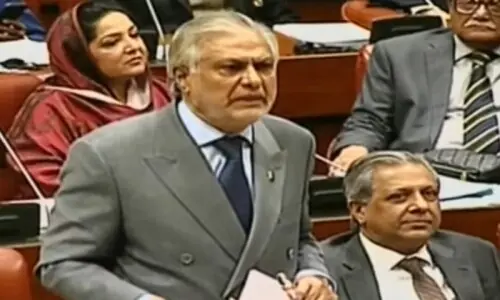AN organisation can achieve high productivity and profitability only if its employees are motivated and committed to their jobs. These dividends are received by an organisation which makes a calculated effort to maintain strong and healthy employee relations.
There is an element of reciprocity in employee relations as the desired results cannot be achieved unless the initiative in this direction is taken by an employer and the employees pay back in the same spirit. The majority of CEOs of the most successful companies in the world rank the maintenance of robust employee relations on top of their prime responsibilities.
In Pakistan people are more familiar with the term ‘industrial relations’ rather than the broader term ‘employee relations’, of which the former is a part. While employee relations apply to all levels of employees in the management hierarchy, industrial relations are limited to that class of workers who are represented by labour unions in the industrial and commercial establishments.
Due to the importance assigned to these relations, some leading organisations in the world have attempted to define the term from their perspective. Nasa, the US space agency, defines it as: “Employee relations involves the body of work concerned with maintaining employer-employee relationships that contribute to satisfactory productivity, motivation, and morale. Essentially, employee relations is concerned with preventing and resolving problems involving individuals which arise out of or affect work situations”.
Poor employee relations can inflict huge losses on an organisation.
The Oxford University Press defines employee relations as under: “Employee relations is a common title for the industrial relations function within personnel management.... The term ... is not confined to the study of trade unions but embraces the broad pattern of employee management, including systems of direct communication and employee involvement that target the individual worker.”
One of the most important local labour laws, the Sindh Industrial Relations Act, 2013, describes its purpose as “An Act to regulate formation of trade unions, regulation and improvement of relations between employers and workmen.” In pursuance thereof, the Act prescribes a number of forums through which both employers and employees get an opportunity to improve their relations.
Employee relations are critical as poor and adversarial relations can not only inflict huge losses and damage on an organisation but even lead to its closure. Equitable employment practices appear to affect employees through improved morale, increased engagement, higher productivity and better retention. Fully engaged workers go beyond expectations and bring the full range of their abilities and creative potential to the enterprise. On the contrary low job satisfaction is associated with higher levels of absenteeism, decreased productivity and increased turnover.
An American multinational company had set up a fertiliser plant in the interior of Sindh in the late 1960s. Besides providing two separate residential colonies for its management and non-management staff, facilities such as clubs, huge playgrounds, swimming pool, schools imparting quality education, a hospital, market and shopping trips to the bigger towns, etc were available to the employees so that they would not feel alienated at the remote place.
The company’s senior management understood that its interest in employee well-being was the top driver of employee engagement. It also involved the employees in decisions that affected their jobs, which invested them in the overall success of the company.
Employees would reciprocate these gestures with enthusiasm and exert their full energies and abilities to achieve the company’s initiatives of improvements in productivity, meeting the safety goals, maintaining a peaceful work environment, caring for each other and extending full cooperation to management during plant emergencies and shutdowns. The management was open to new ideas from employees; it would support the best ideas, recognising and rewarding the originators, no matter where they were in the hierarchy of the company.
In contrast a highly profitable manufacturing unit of a British multinational company operating in the interior of Punjab faced a bad patch of industrial relations for one and a half years in the mid 1990s. There was a complete communication breakdown between the management and the workers’ union as a result of which the plant’s output and profitability came down to almost 50pc during this period. Angry workers caused extensive damage to the plant equipment and machinery. It required a herculean effort by management to bring the situation back to normal.
A company’s mission and value statements should create a sense of identity for employees. A company should strive for a culture which values the dignity of its employees and addresses their aspirations. It is always satisfying to work for an organisation that truly values human resources.
The writer is an industrial relations professional.
Published in Dawn, August 7th, 2015
On a mobile phone? Get the Dawn Mobile App: Apple Store | Google Play





























